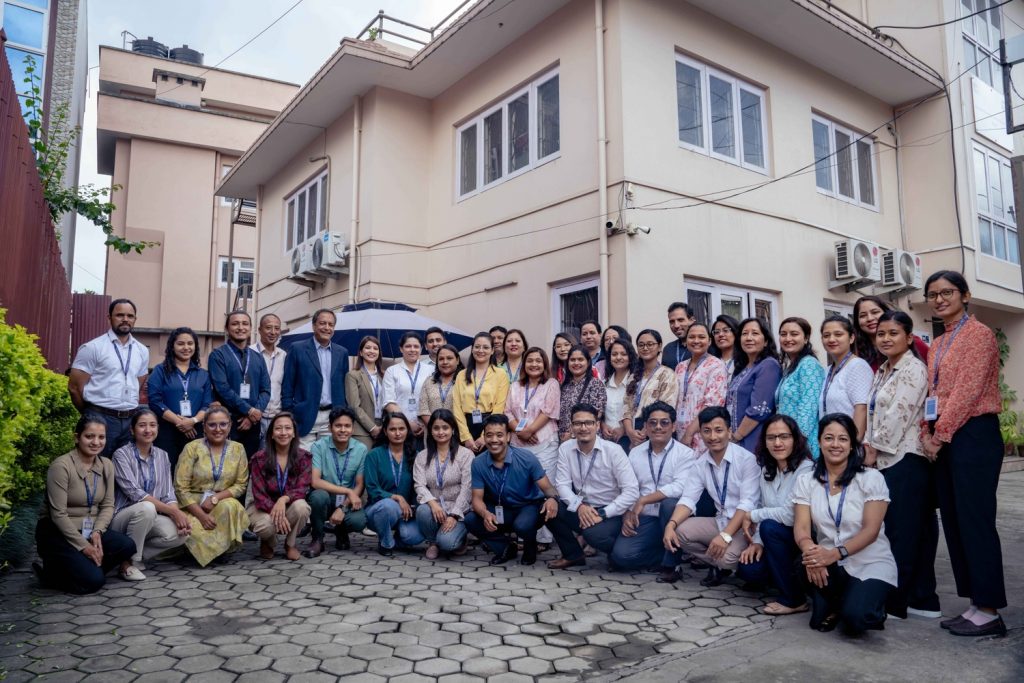Oxford University Clinical Research Unit Nepal (OUCRU Nepal ) is the Nepal arm of OUCRU, a large scale University of Oxford clinical research programme in Southeast Asia. OUCRU Nepal was established in 2003 and is part of the Centre for Tropical Medicine and Global Health at the University of Oxford (UK). We are committed to advancing health outcomes through research and collaboration. In Nepal, we closely collaborate with the National Academy of Medical Sciences in Kathmandu.
Professor Jeremy Farrar and his colleagues had published a review article on typhoid fever in the New England Journal of Medicine, which in turn prompted an exchange of letters between Dr Buddha Basnyat, and Prof Farrar. This exchange culminated in a Prof Farrar visiting Nepal, and beginning the collaboration with Dr Basnyat that would form OUCRU-NP.
OUCRU Nepal’s mission is to have a local, regional and global impact on health by leading a locally driven research programme on infectious diseases.
Since 2003, the research collaboration has evolved and OUCRU Nepal has become a respected and integral part of not just the hospital, but also of the surrounding population of the hospital where most of the research and public health initiatives are undertaken.
For more than two decades, OUCRU Nepal has been dedicated to tackling enteric fever, a major public health concern in the region. Our research has focused on understanding Salmonella Typhi and Paratyphi—determining the most effective treatments, mapping the disease’s spatiotemporal distribution and molecular epidemiology, and conducting surveillance studies to guide typhoid vaccine deployment. As we move into the final phase of this work, our attention is now on controlling gallbladder carriage, a persistent reservoir that sustains transmission even in vaccinated populations.
As Nepal faces a rapid and unprecedented rise in Dengue cases, particularly in Kathmandu Valley, our research has expanded to address this emerging threat. We are working to understand the burden of disease, sequence circulating viral strains, and improve diagnostic tools—all essential for developing effective public health responses.
Beyond enteric fever and Dengue, antimicrobial resistance (AMR) has become a growing challenge, affecting the management of infectious diseases across Nepal. OUCRU Nepal is working to establish hospital-based surveillance systems and implement antimicrobial stewardship (AMS) programs in collaboration with policymakers, ensuring more effective and sustainable antibiotic use.
Looking ahead, we are preparing to expand our work to tuberculosis (TB), focusing on preventive therapeutic strategies through clinical trials. By generating evidence for more effective TB prevention, we aim to contribute to global efforts in reducing its burden.
At the heart of OUCRU Nepal’s mission is clinical research that translates into real-world impact. Through clinical trials and scientific evidence-building, we strive to improve patient care and public health interventions, ensuring that our research directly informs policies and practices that benefit communities in Nepal and beyond.


